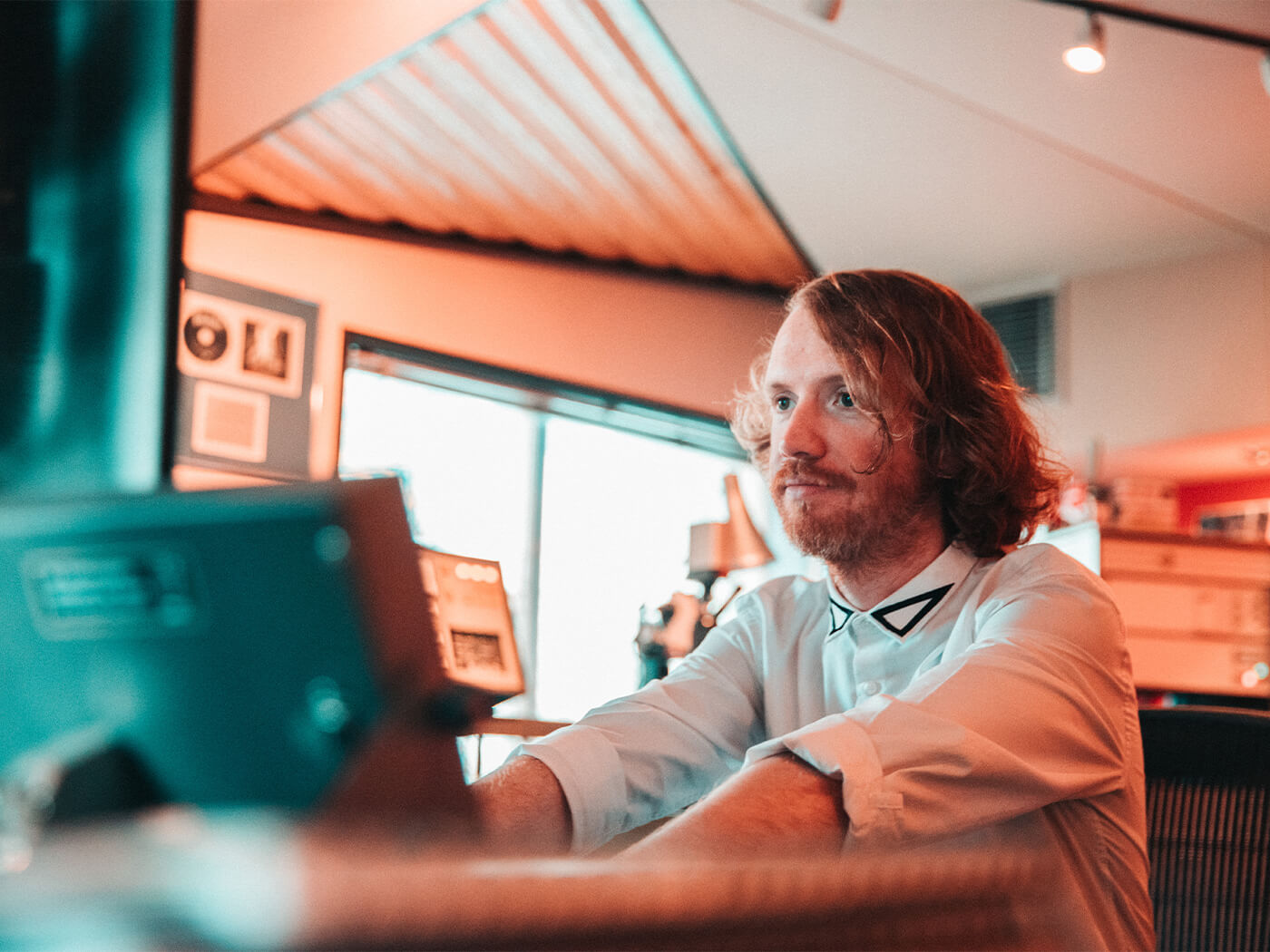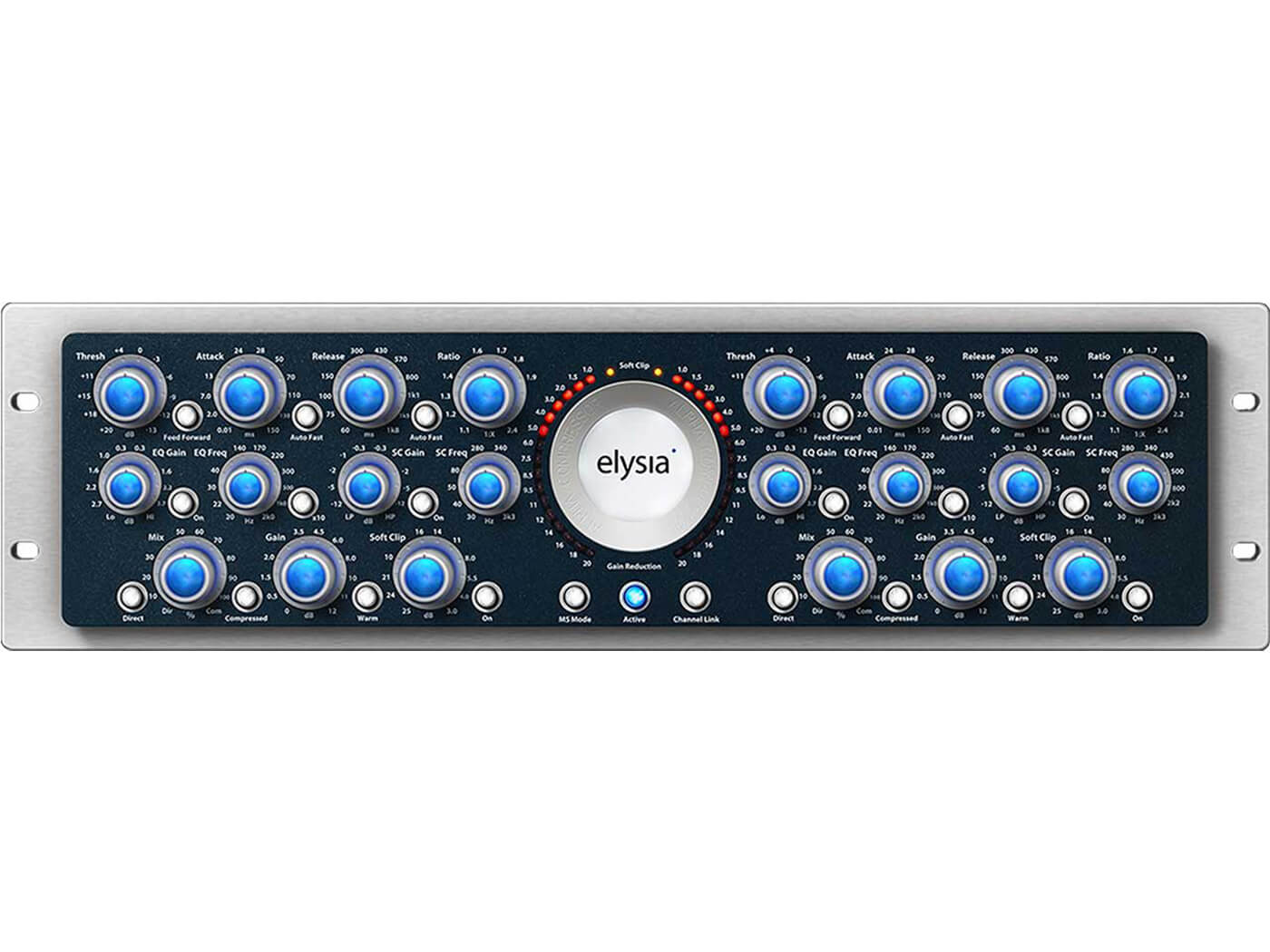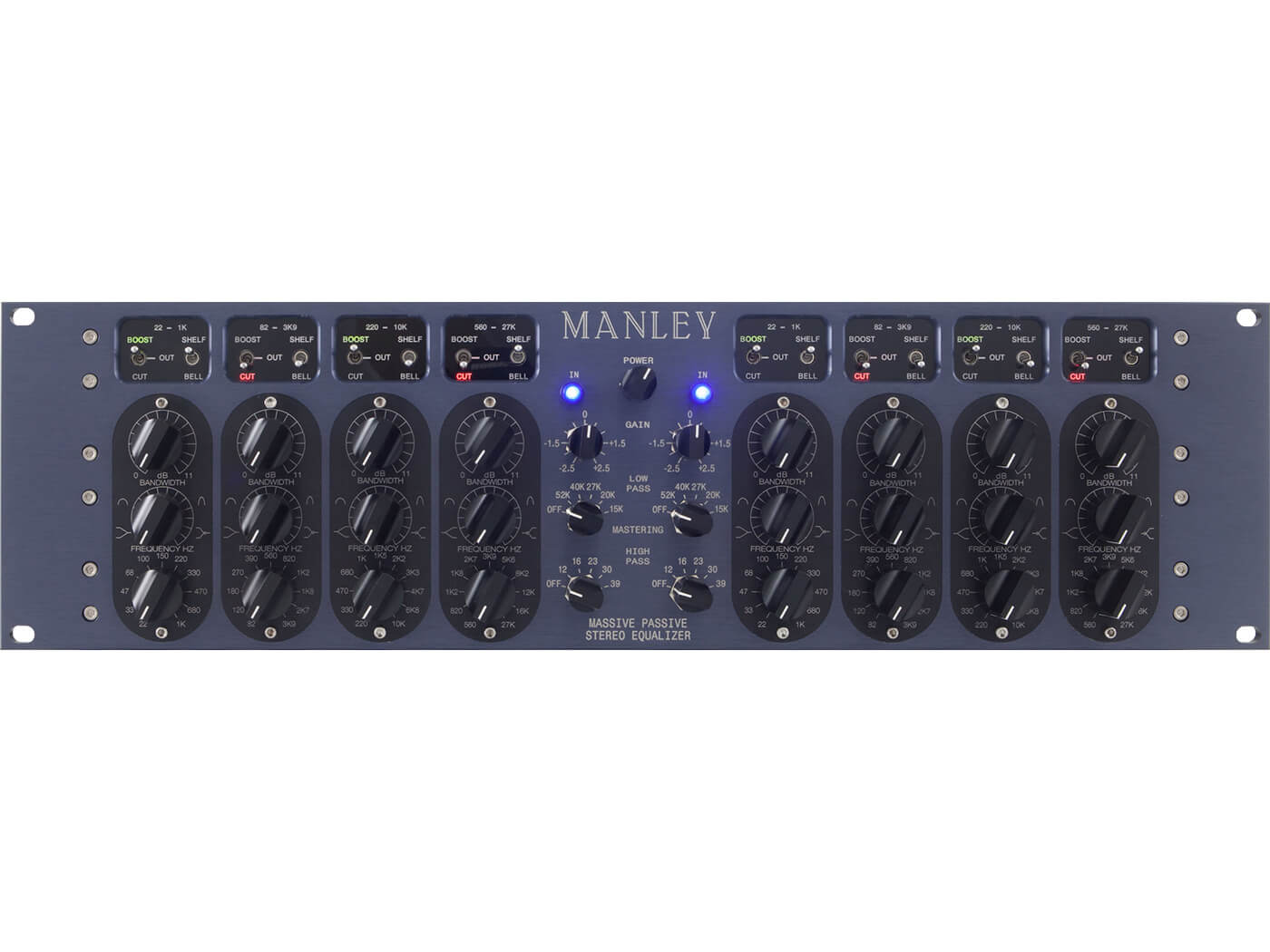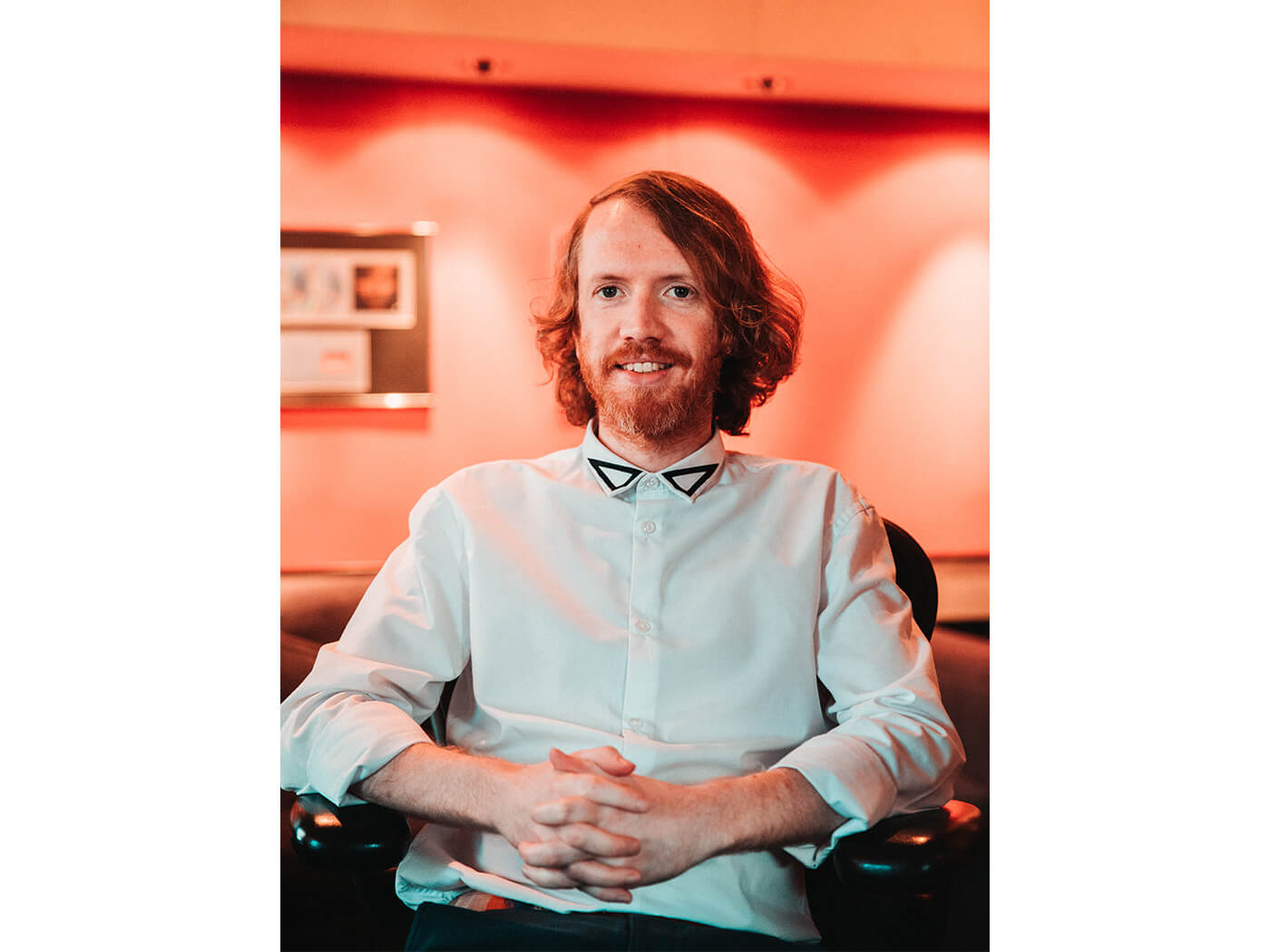Abbey Road’s Christian Wright shares his mastering wisdom and why he doesn’t believe in golden rules
The mastering engineer behind projects from Johnny Greenwood and Ed Sheeran sits with us to offer his expertise and insights into his process.

Christian Wright. Image: Abbey Road Studios
Christian Wright has been at Abbey Road Studios since the age of 19, and has since been responsible for mastering and vinyl cutting projects from some of the most influential artists of our time, including Bjork, Franz Ferdinand, Ed Sheeran, Johnny Greenwood, Ella Fitzgerald and more. Beyond Abbey Road Studios, Christian independently manages production duo Model Man, who have recently been featured in Annie Mac’s Hottest Record In The World.
We sat down with Christian after his mastering workshop at BBC Introducing Live and got his best mastering tips and his take on the future of music.
What best practices can bedroom producers follow when it comes to mastering?
I would say for a start, don’t master inside your mixing session. Bounce the file out, begin a new session, reset your brain and recalibrate the way you’re going to approach the music. Once you’re inside that session, choose the right tools for the job and perhaps if you’re new to it, reference against other material you know. But manage your expectations – if you’re comparing yourself to an Adele record and thinking “why doesn’t it sound as good?”, remember the budget they’ve spent and the difference in their recording process from the beginning. Use something as a reference to help but don’t set yourself unrealistic expectations of hitting that standard from the off.
In your workshop, you mentioned that it’s important to get to know your speaker set-up, instead of worrying about having the ‘best’ or most expensive headphones and monitors.
Yeah, the caveat there is that the bigger your budget for a monitoring system, you would hope, the more balanced and better the frequency response. I just spoke to someone who said they are mastering for a club track, and aren’t sure on their speaker set-up. In this instance they’re concerned they’re not hearing the low end as it will sound in the club, so it’s perhaps best to play it safe. That could be the same if you’re mastering at home and you don’t have a set of speakers that don’t reference below 40Hz. Perhaps put a low cut around 40Hz on the main output and accept that perhaps if you’re playing out a new track in a club you can always dial back in a bit of sub once you’re there in the club. You don’t want it to be blasting out, creating a dull performance when it’s sitting in your set with a lot of other professionally mastered tracks.
Understand what’s possible from your speaker set-up, and perhaps if unsure be a bit cautious.
Do you think there’s anything that should be actively avoiding when during the pre-mastering and mastering process?
Supplying a pre-master that’s being slammed into a limiter isn’t going to be helpful for the mastering engineer to carry out their best work. Perhaps if you’re supplying a pre-master, it’s having dialogue with the engineer. You don’t want to always lead the mastering engineer’s ears with “I definitely think it should sound like this”. But you can certainly have a conversation and say “I’m a little concerned about this, let me know what you think.” That’s important, because then you’re able to understand what’s possible in the mastering environment – you’re opening it up for discussion.
“Ask yourself, ‘Should I go back and improve the mixing, rather than going to the extremes with mastering?’”
When it comes to gear, Abbey Road Studios is kitted out with some of the best hardware available – but what software tools are your bread and butter for mastering?
All the outboard gear I use is available as plug-ins: Massive Passive, Elysia compressor, and so on. Saying that, the exact TG1234 EQ plug-in I use isn’t available any more, but variations of it exist – the RS56 for example. So yeah, it’s all available.

Someone asked me “I’m new to the mastering process, should I invest in a bit of outboard gear?”. The answer isn’t always yes; one piece of outboard gear could fund an entirely new computer, a new set of plug-ins, or perhaps the PR for your artist project. You can spend all the money in the world pushing your music to a good sonic level, but then there’s going to be other expenses in sharing your music with the world.
For me, working inside the box is amazing now with what you can do. And let’s be honest, most professional mixers are working inside the box, maybe in tandem with wonderful outboard. Within the process, having opportunities for things to live and breathe is money well spent, but don’t feel you need outboard to be professional. Carefully consider what you think you need, and go out and try it, maybe speak to other people who have used it before, or read publications that have reviewed and spoken about it and create an informed decision.
Do you have any reference tracks for when you’re mastering?
I’ve got to be honest – not really. When it comes to mixing, one hundred percent use a reference track. There are so many elements to recording an acoustic guitar, from the performance, to the player, to the preamps, to the mic placement, to the room. You can use a reference to help you aspire to the recording, But when you look at it from a mastering perspective, it’s mostly EQ, compression and limiting, I’m still working within the confines of those areas.
I understand my speakers, I’m connecting with the artist and maybe their team to understand the vision of the tracks, and then working with that to get the master in the right place. If I’m blindly following someone else’s sonic acoustics, with all of those previously mentioned elements processed in a different way then I’m following a path I can’t recreate. In mastering, it’s a dangerous thing to do. Do what’s right for the track your mastering.
When limiting you should be understanding what’s right for the song, or how that song fits into the album, you should be working around those decisions, not working to blindly following other tracks. As I said before, if you’re new to the process it could be of some help, as long as you are managing your expectations.

Do you have any tips for keeping things organised in a mastering session?
I mix and produce myself, not to the level of the amazing people I get to work with, but the key thing for me is psychoacoustics. It makes a big difference when going from the tracking stage to the mixing stage to colour code groups and maybe make a duplicate session. You begin to look at things in a different way. When you’re tracking, you’re thinking about the individual moments being tracked – or perhaps the live performance as a whole. Then it becomes about the mix and the interaction between each area of the drums, the bass, the keys and so on. When you get to mastering it’s about the entire track and training your ears to listen to the track as a whole. Everything action in mastering is going to affect another part of the track. Sometimes ask yourself, “Should I go back and improve the mixing, rather than going to extremes with mastering?”.
How can producers make your job easier?
Sometimes my job is incredibly easy because the mix will sound amazing and I have to understand there’s little to nothing I can do. There’s always something to do because you have to put the album together, create the fades, balance the tracks – it’s unlikely you’ll never be doing anything on an album, but there are times where it does just sound amazing. That’s because the mixing engineer is good at what they do, but that’s subjective as well.
There’s no definitive rules in that regard, just make sure you don’t go too far with dynamic processing so that there’s opportunity for the mastering engineer to do their job. If someone goes too far and makes the music sound lifeless, it can be very hard to bring life back into it. That’s an example where communication is key, because I can get back to the client and deal with it there.
Over the last decade or so, how has your process changed?
I love outboard compressors like Elysia allowing wet and dry adjustment. I can either compress heavily or I can have it on a fifty per cent mix ratio, which I couldn’t previously do with my outboard. I think using mid/side, when appropriate – I’ve actually got a bespoke set-up where I can plug in mid/side to every bit of outboard gear I have in the room so the left becomes the mono and the right becomes the sides.
There’s tons of new tools that we need to embrace and do what’s best for the music. I guess the one that does seem a little bit of an ongoing topic is, “is stem mastering just an unfinished mix”? I’m always happy to work with stems but it’s another thing to think about; make sure you’re mix is finished, or at least so you feel it’s finished. It doesn’t feel like the best way to use the budget to come into the mastering room to finish a mix with a mastering engineer.
Do modern listening habits change the way you master music? People are listening to audio through flat-screen TV’s, home speakers like Amazon Echo are more common now…
Perhaps there could be more dialogue between audio platforms/DSP’s and mastering engineers. Maybe the problem is that while we’re trying to get on with what we’re doing, and keeping the client happy, the client can end up living in a state of concern over volume for all the different platforms. Whether it fits, in terms of volume, on radio and YouTube and all these different formats with different audiences and playback.
I understand platforms might be a little concerned about sharing every detail as to how they stream music. But it would be incredibly helpful if we have dialogue, understand how it all works and provide the best listening experience possible for everyone. Of course ‘best listening experience’ is subjective.
What are your thoughts on VR and 360 audio? How will it affect your work?
I think it’s really exciting. Abbey Road kind of has a history of audio outside of stereo or mono not having success. We had Quad in the 70s, then SACD essentially 5.1 audio. When you look at the statistics on how people listen to music, the numbers say a lot of it is on headphones. I’ve heard binaural mixes and yeah, it can be very exciting and fun creatively. I think you want to be cautious with it, you don’t suddenly want gimmicky material. I mean everyone grabs Dark Side of the Moon to have fun with it, but you want to still feel the emotion of the song without feeling it’s a little creatively forced.
Some music will lend itself to that experience. In the same way, when a live gig recording is mixed in 5.1 you could put the crowd in the back and it’s still exciting to listen to. But you don’t want to go over the top with that. You think of some dance music, too, and some of the ethereal aspects, even putting ambience or a piano into a binaural space. I think it’s going to be really exciting and I think it’s about to happen. Also I think it’s up to the labels as well, there needs to be people with the ability to make that happen. Whether you can get enough listeners to make the jump to binaural headphones I’m unsure. Gamers are using binaural at the moment, are they the only people who are listening to binaural audio? I mean, binaural headphones are pretty chunky things. Let’s see what happens over the coming years.
The major tech companies seem to be pushing wireless earbuds, which feels like a step in the opposite direction.
Yeah, it’s hard. You can’t tell someone how they should be listening to music, because fundamentally what they’re listening to is the song and humans like convenience of carrying small buds. The performance is the thing that’s going to move someone, no one is going to be saying “oh my god, the mastering on that song really made me connect with it on a more emotional level”. We’re here on a far more technical level. If you give someone a non-ear-bud set of headphones, even if they’re cheap, they can definitely feel and sound so much better. But maybe some people haven’t had that explained that to them, or perhaps mobility-wise they don’t have the space or desire to carry a larger set of headphones. Personally, I can’t stand buds crawling inside my ears.
Artists like Bjork have pushed the boundaries with VR and 360 before. Without it being a burden on the artists, do you think it would be good for them to start experimenting with it?
I’ve been wanting to sort out Model Man giving this a go. Their work has real opportunity to embrace the foley ambience and mood in the music. There’s a lot of amazing music that would sound exciting with a binaural mix, and as with anything, it will take time to get there. You think back to The Beatles in stereo, no one’s putting the drum kits on one side of the stereo image. They didn’t have rules yet and I guess we’re still working it out.
You go through those bumps in the road and perhaps we’ll have those with binaural. But we’ll see. There’s exciting things happening at Abbey Road with the Abbey Road RED department; it definitely feels like it’s back to a place of innovation. So hopefully if development starts in that area, the rest of us can get involved as they move things forward.
Have you felt any challenges in your work recently?
I think every challenge is just the expectations of the artist and trying to keep them happy. That’s the everyday. Humans are quite interesting creatures, artists especially because they’re quite emotional and creative people. Trying to help them understand their vision is always going to be the challenge until the day I retire or die at my desk. That keeps it exciting too, every bit of music is different and you look forward to people pushing boundaries sonically. But the challenge is dealing with the music in front of you and making it sound the best you can.
Finally, any golden rules for mastering?
Don’t let rules dictate your process. Every bit of music is different, every desire of the client will be slightly different. Don’t blindly follow the volume of something else to the detriment of your music. Do what is best for the song, as best you can.
Find about more about Christian at AbbeyRoad.com. For more on mastering from MusicTech, click here.
